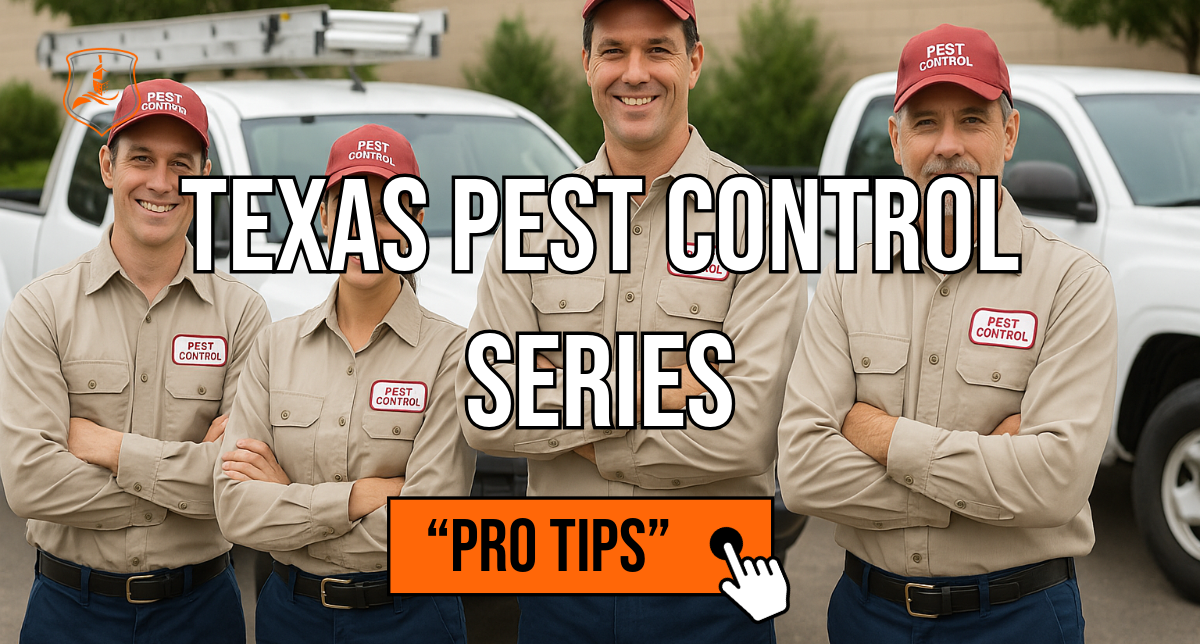When a Tiny Mistake Becomes a Big Problem
Running a pest control company in Texas isn’t just about eliminating pests — it’s about managing risk every time a technician steps onto a client’s property.
From chemical applications to client contracts, your liability exposures are as real as your results.
But here’s the problem: most pest control operators are missing one critical coverage that can make or break their business when a claim hits — Pollution Liability.
At EIS Texas, we’ve seen it happen firsthand: a small spill, a chemical drift, or a misapplied treatment turns into a lawsuit worth tens of thousands of dollars.
1. Pollution Liability: The Most Overlooked Coverage in the Pest Industry
Standard General Liability Insurance doesn’t cover pollution — period.
If a chemical application causes property damage, health reactions, or environmental harm, you could be personally responsible.
Pollution Liability Insurance (sometimes called Contractors Pollution Liability) covers:
- Misapplication or overspray claims
- Chemical drift or groundwater contamination
- Clean-up costs, medical expenses, and third-party claims
- Legal defense and settlement costs
Without it, your General Liability carrier will likely deny the claim — even if it’s the same policy you’ve had for years.
In Texas, even one small misapplication claim can cost a pest control business over $50,000 in legal and cleanup costs.
EIS Texas partners with carriers who specialize in environmental and pest control risks, ensuring your business is protected where it’s most vulnerable.
2. Property Damage from Overspray — The Hidden Liability
Let’s say a technician applies a pesticide near a residential garden. A wind shift carries it onto a neighbor’s property, damaging plants or contaminating a koi pond.
That claim isn’t covered under General Liability because it’s considered pollution or seepage — an excluded exposure.
Pollution Liability Insurance picks up where General Liability stops, protecting your reputation and finances.
At EIS Texas, we help pest control business owners identify these real-world risks and tailor coverage that aligns with how you operate — not just what a policy form assumes.
3. Workers’ Compensation and Employee Safety
Pest control work exposes your team to repetitive strain injuries, chemical exposure, and driving risks.
Many Texas pest control companies — especially smaller ones — assume Workers’ Compensation is optional. But when an injury happens, the cost of not carrying it can cripple your business.
A tailored Workers’ Compensation program provides:
- Wage replacement and medical care for injured employees
- Protection from employee lawsuits
- Lower long-term costs through return-to-work programs
We help ensure your classification codes match your real duties — preventing overpayment or uncovered exposure.
4. Commercial Auto and Non-Owned Vehicle Exposure
Every time a technician drives to a job, you’re exposed to potential liability.
If they’re using a company truck, that’s covered under Commercial Auto Insurance.
But what if they’re using their own vehicle?
That’s where Non-Owned Auto Liability applies.
It covers your business when employees use personal cars for company errands — like picking up supplies or transporting small equipment.
Without it, one accident can pull your business — and personal assets — into litigation.
5. The E&O (Errors & Omissions) Coverage No One Talks About
Even the best operators make mistakes — wrong treatments, missed infestations, or incorrect documentation.
Errors & Omissions (Professional Liability) covers claims alleging:
- Improper inspection reports
- Failure to identify infestation or structural damage
- Negligent service application
If a real estate transaction, inspection, or major account depends on your report, this coverage can save your business.
At EIS Texas, we combine E&O and Pollution Liability into a single pest control program designed for Texas-based operators — offering simplicity, compliance, and real protection.
The EIS Texas Advantage: Service Beyond the Spray
When your client list includes schools, hospitals, and property managers, your exposure grows — and so should your protection.
EIS Texas helps pest control companies build long-term insurance programs that evolve with their growth, ensuring nothing falls through the cracks.
That means:
- Coverage for technicians, trucks, and treatment
- Risk audits aligned with Texas Department of Agriculture licensing
- Fast certificates for contracts and renewals
- Claims advocacy that speaks the carrier’s language, not corporate jargon
Because at EIS Texas, we don’t just sell policies — we help protect the people, purpose, and reputation behind your business.
Ready to Experience The EIS Difference?
At EIS Texas, we know that doing the right thing — for your customers, your employees, and your business — takes more than hard work. It takes leadership and foresight.
That’s why we help pest control professionals go beyond basic insurance to build a foundation of protection that lasts.
If your business has grown or taken on new contracts, it’s time for a risk review.
Let’s make sure your protection grows with you.
FAQs
Do pest control companies in Texas need Pollution Liability Insurance?
Yes. Most General Liability policies exclude pollution, so you need dedicated Pollution Liability to protect against chemical overspray, contamination, or cleanup costs.
What other coverages should pest control companies carry?
Key coverages include General Liability, Workers’ Compensation, Commercial Auto, and Professional Liability.
Does EIS Texas work with multi-location or franchised pest control businesses?
Absolutely. We build scalable programs for Texas pest control operators with multiple routes, vehicles, or field technicians.
Looking for more insurance tips?
- What Are Some Trusted Local Insurance Agents in Dallas That Serve Roofers?
- Texas Contractor Insurance Compliance Failures – The “Why” behind the Breakdown.
- Sell Your Texas Insurance Agency to Owners, Not Private Equity
- The Asphalt Coverage Texas Contractors Miss
- Why Texas Residential Care Facilities Are Looking To Group Captives
Texas contractor insurance checklist, commercial contractor insurance Texas, how much insurance do Texas contractors need, contractor insurance coverage Texas, construction business insurance Texas, general liability insurance for contractors Texas, workers compensation insurance Texas contractors, business auto insurance for contractors, builders risk insurance Texas, contractor umbrella policy Texas, group captive insurance Texas contractors, subcontractor insurance compliance checklist, contractor risk management Texas, insurance limits for contractors Texas, construction insurance requirements Texas, contractor liability coverage Texas, contractor insurance guide Texas, best insurance for Texas contractors, Texas trade contractor insurance, mid-size contractor insurance Texas, EMR and workers comp cost reduction Texas, insurance for construction companies Texas, commercial insurance checklist Texas contractors, total cost of risk for contractors, risk management strategies for trade contractors, Texas contractor compliance checklist, insurance for multi-crew trade contractors, contractor coverage limits explained, commercial contractor protection Texas, insurance programs for construction businesses, Eastman Insurance Solutions Texas contractors, protect what matters most Texas contractors

